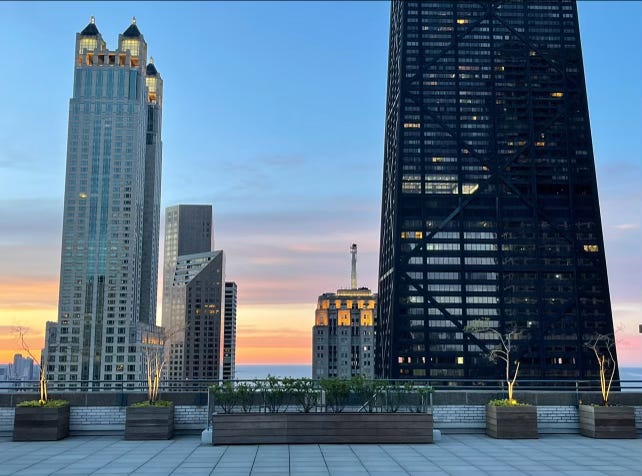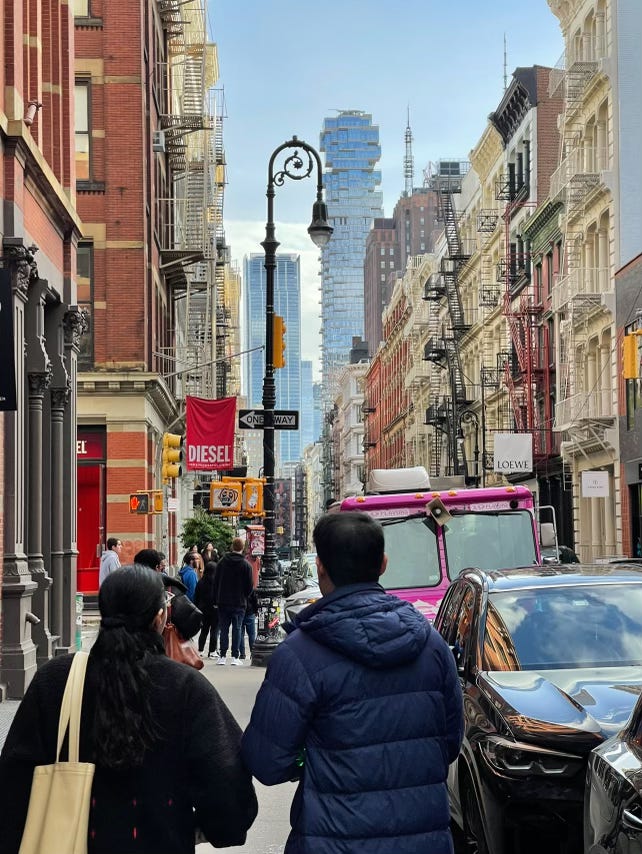The New International System
For the last couple of years, I have quietly pondered and researched the idea of a New International System. Balaji Srinivasan released his book, The Network State, and I often cringe when I admit to reading it.
Beside the point. Generally, people accept the fact that technology is changing us. Others think, with some evidence, it is shaping more of reality.
In international relations, scholars describe the international system as fundamentally anarchic, meaning there is no central authority or global government to enforce rules. Instead of a unitary global government, groups of individuals met under the guise of diplomacy. They created international organizations that serve as mechanisms for increasing coordination in a primarily anarchic environment.
Photo Credit: Ryan Lazarus
A realist might say that the international system is dominated by states seeking power for survival. Think of it as a self-help system where states must take matters into their own hands to survive. The realist goes on to theorize about the balance of power and security dilemmas. For them, the international system is a chaotic environment full of threats. Much of their research focuses on how states survive in this chaotic environment, primarily when intense economic, political, or security competition exists between multiple states. Realism as a theoretical framework for the international system is mostly dystopic, and you can see the slapstick nature of realism primarily through film.
“International politics, like all politics, is a struggle for power.”
- Hans Morgenthau
The Dark Knight (yes, the 2008 Christopher Nolan film) portrays Gotham City as full of chaos and moral dilemmas. Batman, who is really a corporate executive and part-time superhero, sets out to manage this anarchy and competitiveness. The Joker plays the agent of chaos and presents unpredictable threats that disrupt order in Gotham. Batman represents a form of self-help in the absence of a higher authority. He is the principal actor in an anarchic environment.
Chicago, 2024
Photo Credit: Ryan Lazarus
So, back to my original point, the international system is changing shape, and we have the influence and capabilities to play a significant role in its direction here in the United States. We can support maintaining the status quo or look for ways to change it. Sure, we can use more technology. I thought about an international labor market, where individuals build out their own AI systems, and those systems come to replace the text-based Word document known as a resume. This system could be integrated into some of the mobile device's capabilities. It doesn’t solve coordination challenges amongst states, but it could make room for broader participation amongst everyday people. Imagine individuals directly engaging with material issues in the European Union, directly accessing their parliamentary representatives. What’s wrong with that?
But it sounded so boring.
New York City, 2024
Photo Credit: Ryan Lazarus
I went through loops on how augmented reality or virtual reality could make the technology integration more experiential and thought about what political and economic freedom might look like with technology on its side. What I found is more political repression.
Furthermore, most iPhone chips are manufactured by TMSC in Taiwan.
And really, data is not the ‘new’ or ‘old’ oil. It’s not oil. Chips, on the other hand, sound more comparable to Oil as chips, unlike data, are a commodity that holds within them the power to set off a violent conflict. Data, …? Yeah, sorry.
Realism may be more consequential than any mobile device, more than any single technology, more than artificial intelligence. It is a method for making foreign and security policy proclamations, and remember, the environment in which these policy decisions are informed is like where Batman lived. Remember George W. Bush when he was President? He embraced an entirely new realism, or offensive realism, later named the Bush doctrine.
What did the Bush Doctrine say? We will strike pre-emptively, act unilaterally, promote democracy, and fight the global war on terror, and it's us against them in this fight for survival.
Needless to say, it sapped my creative energy.
I want to create with the world within the international system, but not in a system framed purely by self-interests and fueled by the necessity of survival.
Photo Credit: nationalsecurityjournal.org
It comes down to the fact that technological superiority is driven mainly as a compliment to the production of devastating weapons. Do the two have to be interlinked? Is technological superiority superior to weapons systems? Is deterrence putting those weapons systems to use? Does any of this actually work? Does anyone know? Why does the international system think there is no way to maintain stability other than to fight for survival? That sounds like the same reason drug dealers and gang members use to justify poor decision-making once they are caught.
If anything, a new international system prioritizes liberty over everything. Let everyone choose the system that works best for them. We should support and help new governments come online and participate in the global economy. The world is a safer place when people are not only equipped to choose legitimate means for survival, like a job, rather than terrorist activities, but also when policymakers have options that don’t involve F-35s. I don’t mind them doing occasional exercises in the U.S. and air demonstrations over the lake in the summers. Those are fun. But there is no need for the DoD to order them to Syria or Iran, for that matter. Not Afghanistan or Lebanon, either. Definitely not China or Russia, either, right? It just sounds so ridiculous.
Can’t we have an international system that supports economic competition over military conflict? That’s better than what any single technology could offer, I believe.





